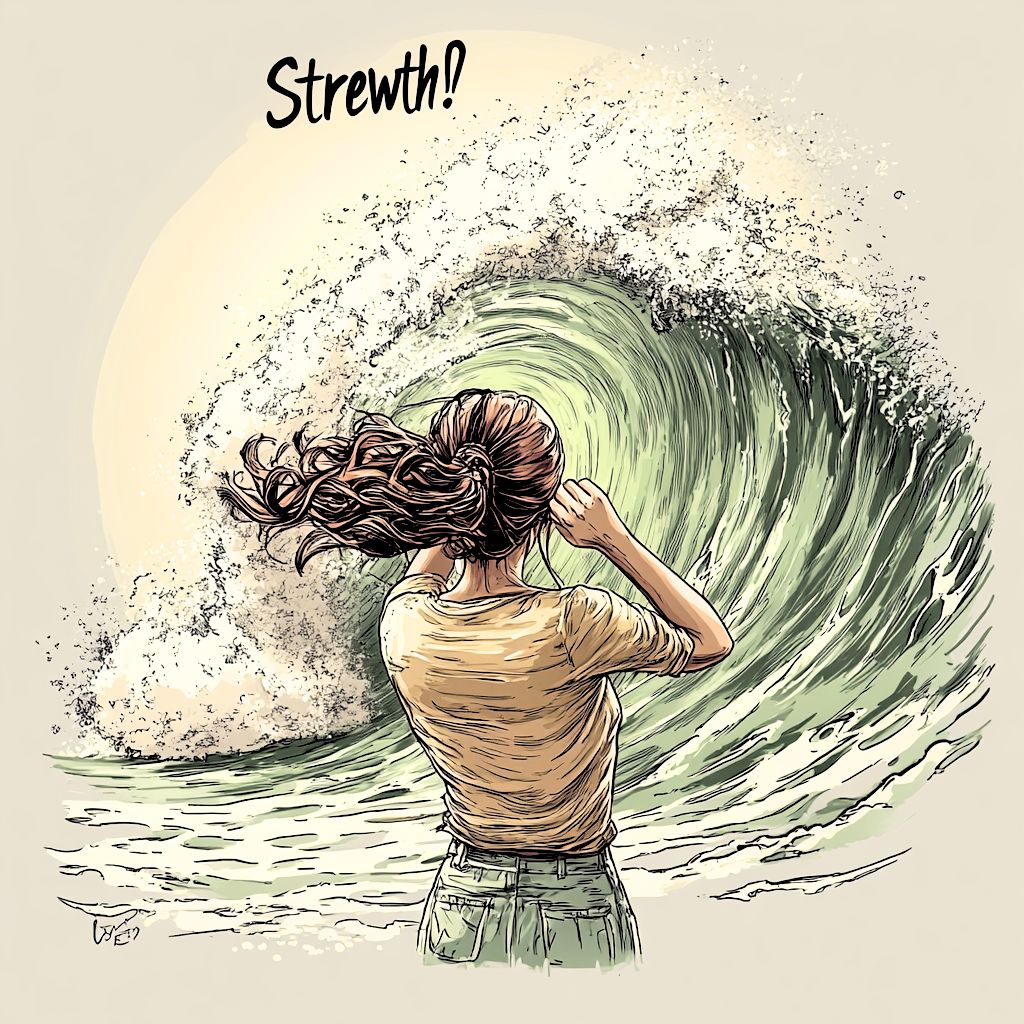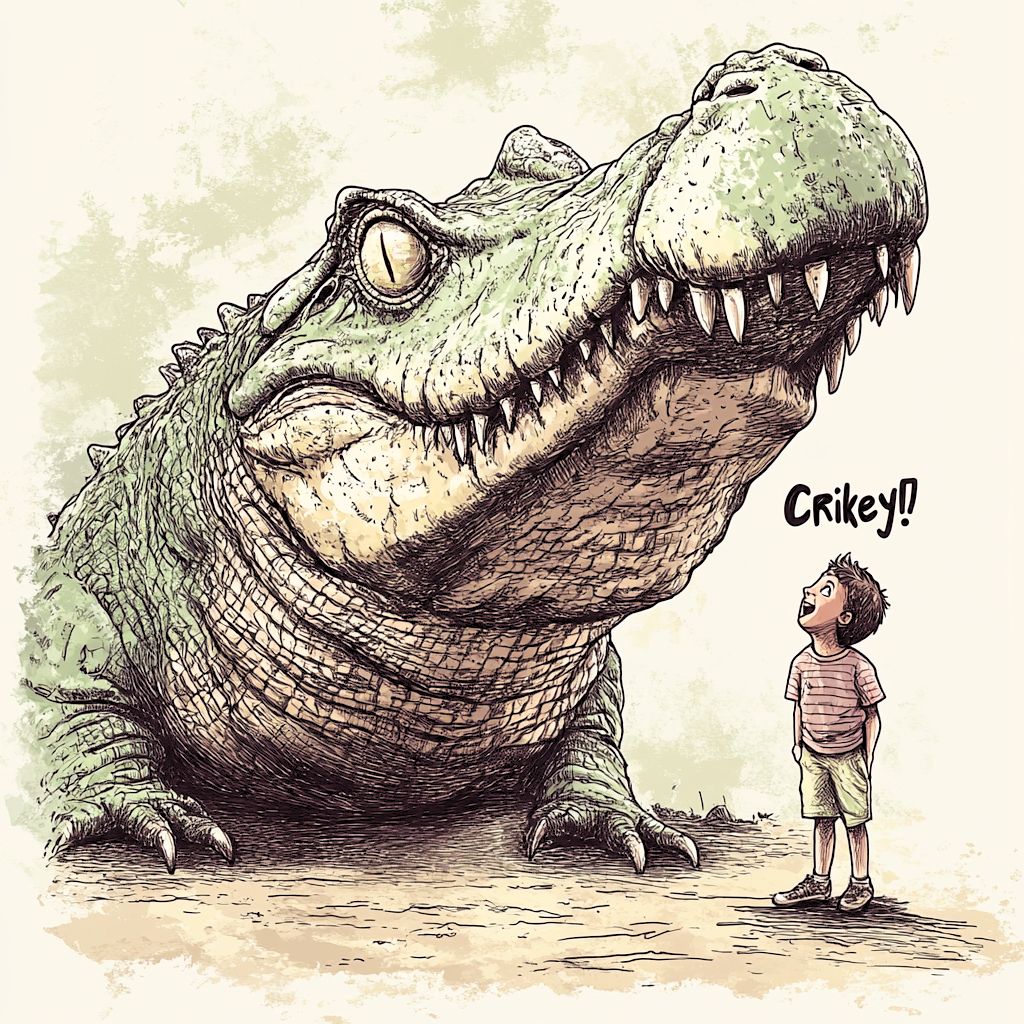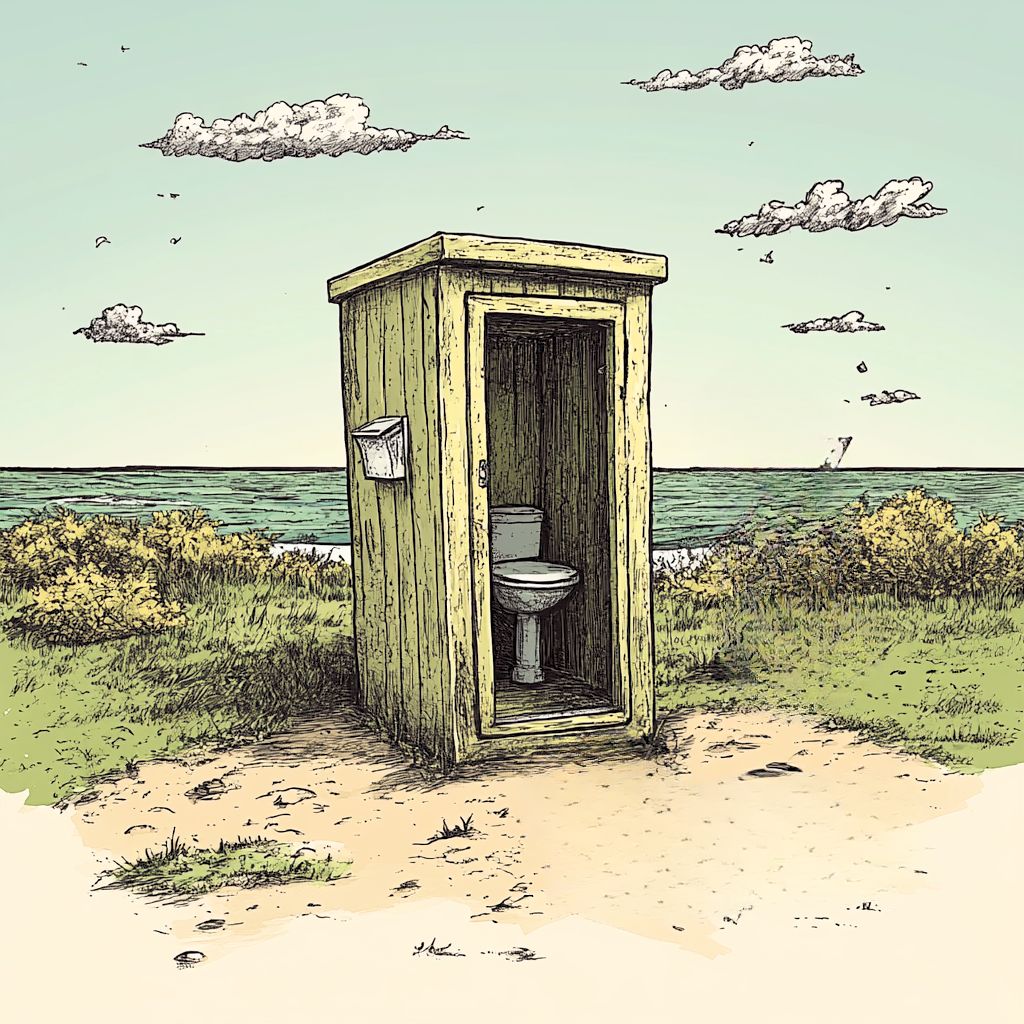Have you ever been deep in conversation with an Aussie and suddenly felt like you’ve stepped into a different world? One moment, you’re following along just fine; the next, you’re wondering if you’ve accidentally tuned into an outback reality show. Aussie English is brimming with colorful expressions that sound perfectly normal Down Under but leave others scratching their heads. These are the kind of phrases that, when you first hear them, make you wonder if you’re actually fluent in English.
But no worries, mate! We’re here to demystify these puzzling phrases and have a bit of a laugh while we’re at it. Ready to decode what on earth your Aussie friends are saying?
Let’s jump on in!
1. “Flat Out Like a Lizard Drinking”
When an Aussie tells you they’re “flat out like a lizard drinking,” you might picture a thirsty reptile in desperate need of a drink. But don’t worry—this phrase has nothing to do with dehydrated lizards! It’s actually a funny way of saying they’re extremely busy, working as hard and fast as a lizard lying flat to lap up water.
Imagine the kind of day where you’re rushing from one task to another without a moment to catch your breath—that’s what it means to be “flat out like a lizard drinking.” It’s the perfect phrase for those hectic days where you feel like you’ve been going non-stop, and it captures that sense of being completely flat out, whether you’re at work, running errands, or tackling a long to-do list.
So, the next time you hear this expression, just know that the person isn’t discussing their pet lizard’s hydration habits—they’re telling you they’re busy beyond belief!
Examples:
- “I’ve been flat out like a lizard drinking all week with this new project!”
- “She’s flat out like a lizard drinking trying to organize the wedding.”
2. “Carrying On Like a Pork Chop”
When you hear an Aussie say someone’s “carrying on like a pork chop,” you might wonder what kind of bizarre culinary disaster they’re referring to. But rest assured, this phrase isn’t about food at all. Instead, it’s a humorous way to say that someone is being overly dramatic or making a big fuss over nothing.
Picture a person who’s throwing a tantrum because their coffee wasn’t quite the right temperature or someone who’s overreacting to a minor inconvenience. That’s exactly what it means to “carry on like a pork chop.” It’s a playful way to point out that someone is being a bit ridiculous, often accompanied by a good-natured eye roll.
So, the next time you catch yourself getting worked up over something small, remember—you wouldn’t want anyone to say you’re “carrying on like a pork chop,” would you?
Examples:
- “He carried on like a pork chop because he couldn’t find his keys.”
- “Stop carrying on like a pork chop—it’s not the end of the world!”
3. “Chuck a Sickie”
If an Aussie casually mentions they’re going to “chuck a sickie,” you might picture someone tossing something into the trash. But there’s no garbage involved here—this phrase is all about taking a day off work by pretending to be sick. It’s the Aussie way of saying they need a break, even if they don’t have a legitimate reason to call in sick.
Whether it’s to enjoy a day at the beach, catch up on sleep, or just take a mental health day, “chucking a sickie” is a familiar concept in Australia. It’s the kind of thing you might do when you’re feeling a little burnt out but still want to keep your boss off your back.
So, the next time you hear someone say they’re going to “chuck a sickie,” just know they’re planning a sneaky day off, not a trip to the doctor!
Examples:
- “I might chuck a sickie tomorrow and have a long weekend.”
- “He chucked a sickie today to go to the cricket match.”
4. “Fair Dinkum”
When an Aussie exclaims “fair dinkum,” you might wonder if they’re referencing some obscure piece of local slang or maybe even a game. But this phrase is as genuine as it gets! “Fair dinkum” is all about honesty, sincerity, and authenticity—like saying “really” or “seriously” in other dialects. It can be used to confirm that something is true or to express genuine surprise or agreement.
Imagine you’re telling an unbelievable story, and your Aussie friend responds with “Fair dinkum?”—they’re basically saying, “Are you serious?” or “Really?” It’s a phrase that can fit into just about any conversation, adding that touch of Down Under charm to any situation.
So, if you’re ever in Australia and someone says “fair dinkum,” just know they’re either validating the truth of something or expressing their own sincerity.
Examples:
- “Fair dinkum, that was the best steak I’ve ever had!”
- “You won the lottery? Fair dinkum?”
7. “Going Walkabout”
When an Aussie mentions that someone has “gone walkabout,” you might imagine them going on an adventurous journey through the Outback. And in a way, you’re not far off! The phrase “going walkabout” originally referred to a traditional Aboriginal practice where young men would go on a spiritual journey across the land. Nowadays, it’s used more casually to describe someone who has wandered off or disappeared without telling anyone where they’re going.
Imagine your friend suddenly vanishing from a party or someone at work stepping out without explanation—an Aussie might say they’ve “gone walkabout.” It’s a lighthearted way to acknowledge someone’s absence, often with a hint of humor.
So, if you hear someone say “going walkabout,” just know it’s a playful way of saying someone’s gone missing for a bit, likely to return after a bit of solo wandering.
Examples:
- “Where’s Dave? He’s gone walkabout again—probably off exploring.”
- “I’m just going walkabout for a bit, need some time to myself.”
8. “Crikey!”
“Crikey!” is an exclamation that might remind you of the late Steve Irwin, and for good reason—it’s a quintessentially Aussie expression of surprise or astonishment. It’s similar to saying “Wow!” or “Oh my gosh!” and can be used in various situations, from spotting a huge spider to hearing shocking news.
It’s a phrase that’s often associated with the more adventurous side of Aussie culture, reflecting that blend of awe and excitement when encountering something unexpected.
Examples:
- “Crikey! That’s the biggest croc I’ve ever seen!”
- “Crikey, I didn’t see that coming!”
9. “Cactus”
In Aussie slang, if something is “cactus,” it’s not a prickly plant—it means it’s broken, dead, or out of order. This phrase is commonly used to describe anything that’s no longer working, whether it’s a machine, a gadget, or even someone exhausted.
Imagine a car that won’t start or a phone that won’t turn on—an Aussie might simply say, “It’s cactus,” meaning it’s completely kaput.
Examples:
- “The engine’s cactus, we’re not going anywhere today.”
- “My phone’s cactus; I’ll need to get a new one.”
10. “Dunny”
The word “dunny” might sound puzzling to non-Aussies, but it’s a common term for a toilet or bathroom in Australia. Specifically, “dunny” often refers to an outdoor or older-style toilet, which you might find in rural areas or older homes. It’s a no-nonsense, down-to-earth word that’s a staple in Aussie vernacular.
The word “dunny” originates from the British word “dunnekin,” slang for an outdoor toilet or cesspit. Over time, this word was shortened to “dunny” and became widely used in Australia. Many homes didn’t have indoor plumbing in the early days, so the “dunny” was usually a small outhouse away from the main house, often at the back of the yard.
So, if you hear an Aussie say they’re heading to the dunny, they’re simply telling you they’re off to use the toilet. Whether it’s a modern bathroom or an old-school outhouse, “dunny” is the word they’ll use.
Examples:
- “Just need to stop by the dunny before we hit the road.”
- “The dunny’s out the back, past the garden shed—classic Aussie setup.”
11. “Ripper”
When an Aussie says something is “ripper,” they’re not talking about tearing something apart. In Australia, “ripper” is a term used to describe something that’s absolutely fantastic or awesome. It’s the kind of word you’d use when something has exceeded expectations or when you’re genuinely impressed.
The origin of “ripper” comes from the phrase “ripping good,” which was once common in British English to describe something exceptionally good. Aussies shortened it to “ripper,” and it became a staple in the local lingo to express enthusiasm and approval.
So, if you hear someone say “That was a ripper of a game!” or “She’s a ripper of a cook,” know that they’re giving the highest praise.
Examples:
- “That party was a ripper—best one I’ve been to in ages!”
- “He’s done a ripper job on the project, really went above and beyond.”
This should round out your list with another quintessential Aussie phrase!
Crikey! Now You’re Speaking Aussie!
Congratulations, mate! You’ve just survived a crash course in Aussie lingo. With these phrases in your back pocket, you’re well on your way to understanding and maybe even speaking like a true-blue Australian.
When you hear someone say they’re “flat out like a lizard drinking” or need to “chuck a sickie,” you won’t be left scratching your head—you’ll be nodding along with a knowing grin. Just remember, whether you’re heading to the dunny or going walkabout, you’re now armed with the words to make your way Down Under without sounding like a complete drongo. Cheers to that!

Hey fellow Linguaholics! It’s me, Marcel. I am the proud owner of linguaholic.com. Languages have always been my passion and I have studied Linguistics, Computational Linguistics and Sinology at the University of Zurich. It is my utmost pleasure to share with all of you guys what I know about languages and linguistics in general.






